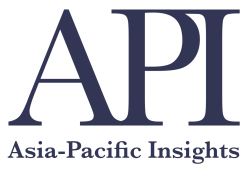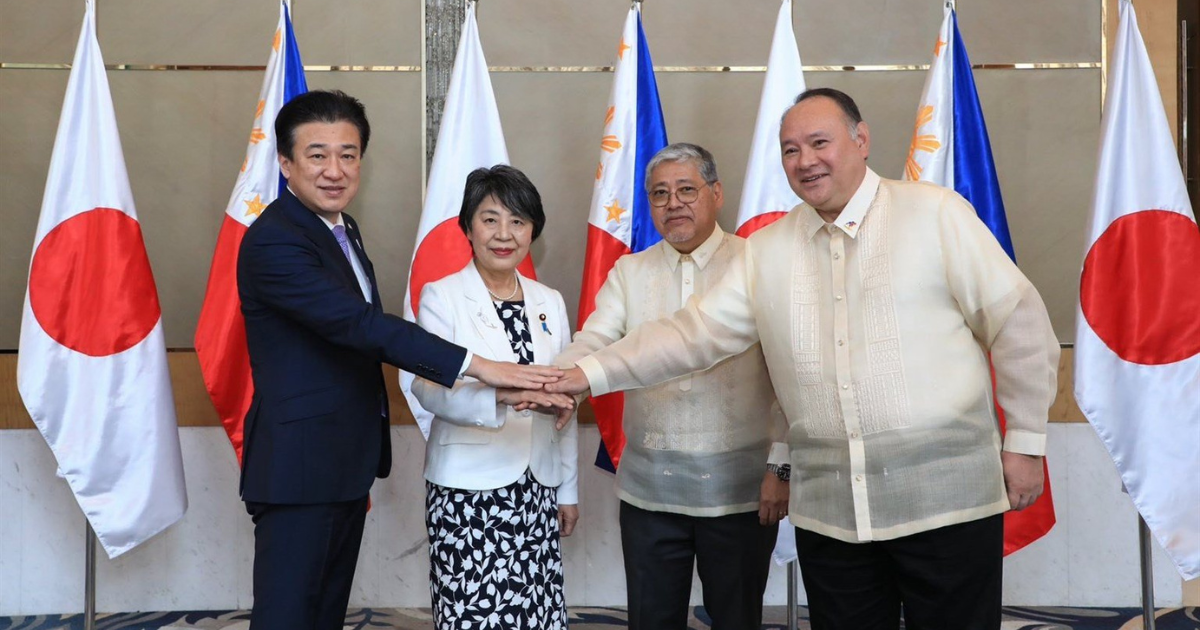PH agrees to host Japanese troops for exercises, combat training
Secretary for Foreign Affairs Enrique A. Manalo and Secretary of National Defense Gilberto C. Teodoro Jr. met with Minister for Foreign Affairs Yoko Kamikawa and Minister of Defense Minoru Kihara on Monday, July 8. Photo from the Department of National Defense.
By Manuel Mogato | Date 07-11-2024
MANILA — The Philippines and Japan had signed a status of forces agreement, allowing many Japanese troops to be deployed temporarily on Philippine soil for combat training, military exercises, and humanitarian operations.
The Reciprocal Access Agreement (RAA) agreement is similar to the two existing Visiting Forces Agreements (VFA) with Australia and the United States. (Also read: US forms triangle with treaty allies Japan and Philippines to fend off invoking MDT’s Article V)
“It’s just tailored to conform to the requirements of the domestic laws of each country,” Defense Secretary Gilberto Teodoro Jr. told a news conference after the Philippines and Japan signed the security deal.
“In essence, everything remains the same. It allows the interoperability between the Armed Forces of the Philippines (AFP) and the Japanese Self-Defense Forces (JSDF) both here and in Japan.”
The parliaments of the two countries will have to ratify the RAA before it comes into force.
Japanese Foreign Minister Yoko Kamikawa signed the RAA for Tokyo, while Teodoro signed for Manila. President Ferdinand Marcos Jr witnessed it.
Kamikawa said the RAA was not designed to counter any third party but only aimed to enhance training and interoperability of the two countries. (Also read: Japan promises equipment transfer to boost Philippine maritime capabilities)
Foreign and defense ministers of the two countries met in Manila for the second ministerial 2+2 meeting, a significant platform for high-level discussions and decision-making in international relations.
They exchanged views on regional security developments, including the situations in the Korean Peninsula, the East and South China Sea, and the Taiwan Straits.
There was also discussion on bilateral security cooperation, including cybersecurity and telecommunications.
“It will put the flesh into our already strong and robust bilateral relations,” Teodoro said, commenting on the RAA.
The negotiations for the status of the forces agreement took only eight months, although the Japanese were already exploring the possibility of holding drills with the Philippines as early as 2012.
Security analyst Chester Cabalza said the agreement was “groundbreaking” and could be a counterweight to China in the Indo-Pacific region.
Political analyst Don McLain Gill said the agreement with Japan would act as an independent stabilizing force.
“Japan has played a significant role in crafting a more robust framework for Manila-Tokyo ties, and Japan has also demonstrated its steadfast commitment to being the Philippines’ major economic and defense partner,” he said.
However, a group of women, who served as “comfort women” during the Japanese occupation and other activists held a protest in front of the Japanese Embassy in Pasay City.
They opposed the signing of the military agreement.
For its part, China said the RAA should not “target” third parties. (Also read: “China-centered unified command” is a dream worth pursuing in PH-Japan-US trilateral)
“The exchange and cooperation between countries should not undermine the mutual understanding and trust between other countries in the region,” Lin Jian, a foreign ministry spokesman, said.
“It should not threaten regional peace and stability, target any third party, or harm the interests of any third party.”
“The Asia-Pacific region does not need any military bloc, still less groupings that incite bloc confrontation or a new Cold War,” he added.
The RAA signing was the highlight of the 2+2 meeting between Filipino and Japanese officials.
During the meeting, the Philippines appreciated Japan’s consistent support of the various incidents which constitute destabilizing conduct.
It also “underscored the unwavering commitment to freedom of navigation and overflight consistent with UNCLOS and expressed serious concern over the dangerous and escalatory actions by China at Second Thomas Shoal, which obstructed freedom of navigation and disrupted supply lines, thus increasing tensions.”
Teodoro said the RAA was limited to training and exercises and did not extend to helping the Philippines in case of an external attack.
“It is not within my jurisdiction to talk about what you say mutual defense treaties and others,” Teodoro said.
“That will depend upon our political leadership and of course upon the advice of the relevant ministers.”

